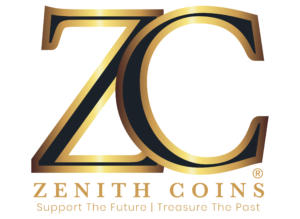The rise of crypto-sports partnerships
According to Nielsen Sports, a sports analytics company, there was a 100% observed increase in the formation of this type of partnerships in 2021 and the spending in expected to reach $5bn in the next 4-5 years.
The general widespread adoption of cryptocurrencies can be attributed as one of the major contributing factors, simply due to the fact that crypto projects tend to be easier to market if there is a substantial following behind them.
Crypto-sports partnerships in theory and practice
As one of the recent examples, Manchester United F.C. signed a sponsorship deal with Tezos, an open-source blockchain platform, a partnership with an estimated worth of $27m on an annual basis. As part of the arrangement, Manchester United players will be wearing Tezos’ logo on their jerseys. This is the very same crypto company that sponsored McLaren Racing.
In a similar vein, Manchester City F.C. partnered up with OKX, a cryptocurrency exchange, that will be displaying its logo at Etihad and Academy Stadia. Keep in mind this is the first OKX sponsorship in the sports industry, but nonetheless, it serves as a clear indicator that cryptocurrencies and sports may be more intertwined than many would imagine. While we’re at it, there’s Binance’s sponsorship of TotalEnergies Africa Cup of Nations in 2021.
In the Formula 1 space, Red Bull Racing managed to score a 3-year sponsorship deal with Bybit, a popular cryptocurrency exchange. There’s also Alpha Romeo F1 that’s sponsored by a cryptocurrency company called Floki. And let’s not forget the partnership between Scuderia Ferrari F1 with Velas Network AG.
The sports and crypto industries are connected
Day in and day out, new synergies between the crypto sphere and the sports industry are emerging, transcending the borders between physical and digital. Did you know that Manchester City F.C. is working on the world’s very first digital football stadium that will be running in the metaverse? It’s not just for show either; rather, it serves as a practical way to spectate football matches in real-time.
Fan tokens are designed to strengthen sports fan relationships
Another example is the existence of fan tokens that are geared at increasing fan engagement and strengthening the teams’ relationships with the fans. In essence, these are cryptocurrencies that are connected to a football team.
Their practical value lies in them being a medium of exchange, as they can be used to purchase tickets, getting merchandise discounts, voting on internal matters, and building relationships in the community. Examples of teams that have already decided to implement fan tokens include Juventus, AC Milan, Atletico Madrid, FC Barcelona, AS Roma, and Paris Saint-Germain FC.
Sports teams speak to the younger generations
Historically speaking, sports teams have had an easier time reaching the younger generations, so partnerships with Coca Cola and Red Bull have been very much a staple. Although these are non-crypto brands, the younger generations tend to be tech-savvier than their seniors, so there are plenty of opportunities left to explore in the partnership space.
Thanks to the streamlined access to educational resources and consumer-priced technology, however, expanding your horizons is easier than you think. To see how the seemingly complex blockchain networks and cryptocurrencies work in practice, a good resource to learn more about it all can be found here:











